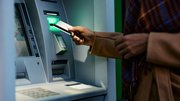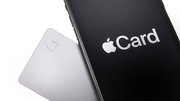News
Many European ATMs get heavy workout with euro
January 1, 2002
BRUSSELS, Belgium -- Europeans flocked to ATMs throughout the day on Jan. 1 to take advantage of their first chance to get their hands on the new multicolored euro notes, according to reports by both the Associated Press and Reuters.
Action was generally heavy at ATMs. Italy's Banca di Roma reported a record 21,000 withdrawals by late afternoon, totaling 3.5 million euros ($3.1 million).
In Belgium, more withdrawals were logged by 8 a.m. than in the entire day a year ago. Banksys, which administers most ATMs in Belgian stores and gas stations, noted a record number of withdrawals in Jan. 1's first hour - 600 a minute.
In Finland, hundreds of people lined up outside Bank of Finland branches in the early morning.
In France, Finance Minister Laurent Fabius said the switch was going better than expected and forecast that 85 percent of francs would be pulled from circulation in only two weeks.
In laid-back Spain, 85 percent of ATM machines dispensed euros by the afternoon of Jan. 1, but people didn't rush to spend them. Some bars, coffees shops and restaurants in Madrid even refused euros, albeit politely, saying they had no coins or bills to make change. Cafes in Rome, Paris and Vienna also said most of their clients paid with the old currencies.
In Italy, only about a third of ATMs were dispensing euros, according to the Italian Bankers Association.
The European Union's executive Commission called the first day of the currency switch a success, saying no major glitches were reported from any of the 12 euro nations. But EU officials conceded the real test would be Jan. 2, the first day of business following the New Year's holiday.
Complicating matters, bank workers in Italy and France were expected to go on strike, putting pressure on management at a crunch time.
In France, bank workers say they haven't had a pay rise despite the extra workload linked to the euro's debut. Their unions scheduled the one-day strike despite appeals from the country's finance minister not to spoil the historic moment.
The two Bank of Italy unions planning a walkout are trying to force mediation of a contract dispute.
The euro, a decade in the works, is perhaps the most concrete evidence of Europe's transition from a divided continent to a team of nations working toward the same goals.
In a mammoth logistical exercise, more than 15 billion bank notes and 52 billion coins -- worth 646 billion euros, or $568 billion -- were distributed for the switch
National currencies will circulate along with the euro for up to two months to help ease the transition, but European Central Bank officials are hoping that most people are using only euros after the first two weeks.
Politicians hope the euro will stimulate trade and investment by eliminating foreign exchange costs. It is also expected to fuel competition and tame inflation by making it easier to compare prices across the continent.
But whatever the economics, the euro owes its conception to politics. France pushed a common currency plan in 1989 to bind wealthy old rival Germany into an unbreakable alliance as the fall of the Berlin Wall gave Germans a new dominance in Europe.
The euro was introduced on the financial markets in 1999, when the national currencies ceased to trade independently. But for many, the psychologically important moment was the appearance of the real cash on Jan. 1.
Some Europeans had hoped that the euro would gain global currency supremacy, but it has taken a beating on the markets over the past three years, falling from $1.1747 when it began trading in 1999 to around 90 cents at the end of 2001.
Politicians believe the everyday use of euros will boost its worth as people around the world come into contact with it and accept that it is here to stay.













